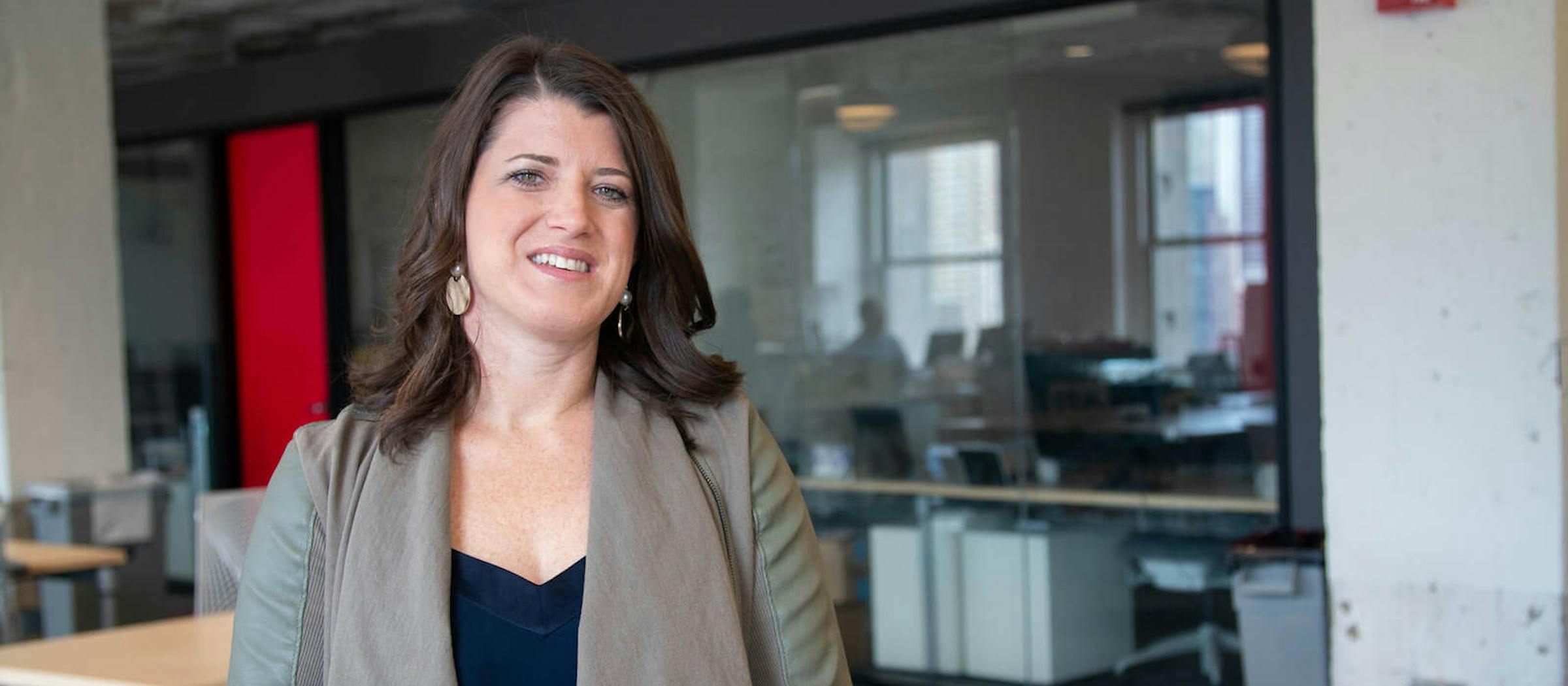Helping people die better: A conversation with Vynca's Emelia Altschul
Most healthcare startups share a common goal: to improve lives. Whether through a new drug, medical device or digital health platform, most healthcare companies are focused on helping individuals live better and longer.
However, living better doesn’t always mean living longer. Like all healthcare companies, MATTER startup Vynca shares the goal of improving lives, but their focus is on a part of life many of us ignore — often until it’s too late.
“Everyone talks about living well as really important,” said Emelia Altschul, their director of marketing, “but it’s just as important to help somebody die well.”
Vynca wants to make sure people die the way they choose. While individuals can create an advance directive document to choose what measures they want taken if they are admitted to the hospital, in the fast-paced environment of an emergency room, their wishes can be — and are often — lost. In order to help ensure that people’s end-of-life wishes are met, Vynca created a platform to help individuals plan for that time and create documentation that can be shared across the care continuum.
We caught up with Emelia to learn more about end-of-life care and the importance of advance directives. Below are the highlights of our conversation.
The basics: What is an advance directive?
“An advance directive is a legal document that states your wishes for medical treatment. Once you get towards more serious illness and end of life, there is a medical form called the Physician’s Orders for Life-Sustaining Treatment (POLST). Each state has a different spin on the name, but really this [document] is meant for that last year of life. It’s a medical order that states what a person may or may not want from a medical treatment standpoint — and this can be changed. Just because you fill out one POLST form doesn’t mean you can’t fill one out the next month, which is very common as somebody progresses through an illness; maybe they want full treatment at first — let’s say for cancer — but a month or two down the road they may decide to change that.”
It starts with a conversation.
“A lot of people don’t want the treatment they’re receiving but they don’t know they have the option to not have it. They don’t know what a POLST is and they haven’t had the discussion with their family — let alone their clinicians or providers. And when you look at studies, they show that a lot of individuals do want to have these conversations with their healthcare providers, but they’re not having them. One of the big barriers to end-of-life discussions or advance care planning in general is that providers and clinicians aren’t prepared to have the necessary conversations.
One of the big barriers to end-of-life discussions or advance care planning in general is that providers and clinicians aren’t prepared to have the necessary conversations.
“It’s not an easy conversation to have — I hear a lot of physicians say that they went to school to learn how to save lives, not talk about how to die. Fortunately, there are some efforts being made in a number of states to change this [mentality]. In Massachusetts, for example, they have a program where all their medical schools require students to take a class on end of life and advance care planning. OHSU in Oregon also requires that [students] pass a test. So they are recognizing this gap, but it’s going to take some time.”
The importance of informed decisions.
“It’s really the education that’s important. For example, how many people really know what happens during CPR? You probably watch TV and see CPR performed and the patient is revived and essentially up and talking the next day or two hours later. They don’t go through the rest of it — that you’re going to crack your ribs and have all this damage. If you don’t know the full picture and recovery time after, then [choosing to be resuscitated] is not really an informed decision, it’s making a decision based solely on the idea that you want to survive. That choice may be fine for a young and healthy individual, but that’s very different from a frail 85-year-old who isn’t in the best health. Are they making the right decision to get CPR if they don’t know what the aftermath could be?”
Technology doesn’t work without the right training.
“We need the right programs and technology in place to make a comprehensive advance care planning program. The approach Vynca is taking is being an end-to-end solution and technology backbone and then working with healthcare organizations to figure out what they want their advance care planning program to look like.
“You can’t just put a technology in place and expect the program to be successful. There is training and education that needs to happen. Even when individuals do have those end of life conversations, providers or clinicians don’t always know what to act on. There is that educational divide on the provider side too, and it’s on the healthcare organization to really train their clinicians, not just around talking about advance care planning and what technology they use, but what to act on versus what not act on. In the back of everybody’s mind there’s always that legal question and potential lawsuit. There’s one article that came out that said ‘I saved my patient and now I’m being sued’ because there was a POLST form on file and they didn’t check for it, so they saved someone even though that’s not what they wanted.”
Respecting individual choice.
“End-of-life care falls under death and while I think the stigma is being lifted — and there are great documentaries and conversations focusing on end of life — there’s still that desire to avoid the conversation. But it’s an individual choice that we need to discuss. If somebody says ‘let me die peacefully, I don’t want anything done to extend my life’, that should be their choice. If somebody wants all measures taken, that’s also their choice. There are a lot of ways to look at it but at the end of the day, my choice at the end of life is probably very different than yours — and that’s ok and that’s the way it should be.”
There are a lot of ways to look at it but at the end of the day, my choice at the end of life is probably very different than yours — and that’s ok and that’s the way it should be.
Watch our Stories That Matter with Vycna Co-founder Ryan Van Wert, MD to learn what led him to found the startup.



